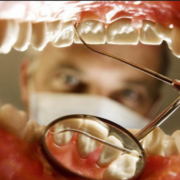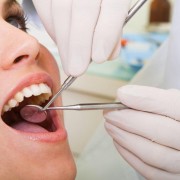Why Thumb Sucking is Bad for Children’s Teeth
Thumb sucking is a common habit among infants and young children. It provides comfort, security, and a sense of calm. However, as children grow and their teeth begin to emerge, prolonged thumb sucking can cause dental problems that may require intervention. At Chauvin Family Dentistry in Lafayette, we often see how early guidance can prevent long-term issues and ensure your child’s smile develops healthily.
When Thumb Sucking Becomes a Concern
Most children naturally stop thumb sucking on their own, but if the habit continues after permanent teeth start to appear, dental complications may arise. Thumb-sucking can affect your child’s bite and teeth alignment, and it may also contribute to issues like bad breath. Some children may notice unusual tastes in their mouth from prolonged thumb-sucking or other oral habits.
Excessive thumb sucking can cause:
-
Open bite: The front teeth may be pushed outward, making it difficult to close the mouth properly.
-
Overbite or misalignment: Persistent pressure on teeth and jaws can alter normal growth.
-
Speech issues: Children may struggle with “S” sounds or other speech patterns that require proper tongue placement.
-
Thumb and skin irritation: Ongoing sucking can lead to chapped skin, infections, or nail problems.
Dental professionals generally recommend that children stop thumb sucking by around age five, or once permanent teeth start emerging, to avoid these complications.
How to Help Your Child Stop Thumb Sucking
Encouraging your child to break the habit takes patience and positive reinforcement. Here are some strategies recommended by Lafayette dentists:
-
Positive reinforcement: Praise your child when they refrain from thumb sucking. Consider a sticker chart or small rewards.
-
Identify triggers: Some children suck their thumbs out of boredom or anxiety. Engaging activities or comfort alternatives can help.
-
Gentle guidance: Avoid scolding or punishing your child, which can increase stress and make the habit worse.
-
Set limits at night: If thumb sucking occurs mostly during sleep, placing a light bandage or sock on the hand can serve as a reminder.
-
Professional support: Discuss your concerns with your child’s dentist. They can offer personalized strategies, appliances, or advice suited to your child’s dental development.
The Role of a Lafayette Dentist
Regular dental visits are crucial for monitoring how your child’s teeth and jaw are developing. At Chauvin Family Dentistry, we not only treat dental issues but also guide families on habits like thumb sucking to prevent future complications. Early intervention can save time, money, and discomfort down the line.
When to Seek Help
If your child continues thumb sucking past the recommended age or shows signs of dental misalignment, it’s time to consult a Lafayette dentist. Addressing the habit early helps preserve proper tooth alignment and speech development.
Schedule an Appointment
At Chauvin Family Dentistry, we’re here to help your child maintain a healthy, confident smile. Our team can assess the impact of thumb sucking, provide guidance to curb the habit, and ensure your child’s teeth develop correctly. Contact us today to schedule an appointment and take the first step toward long-term dental health.


